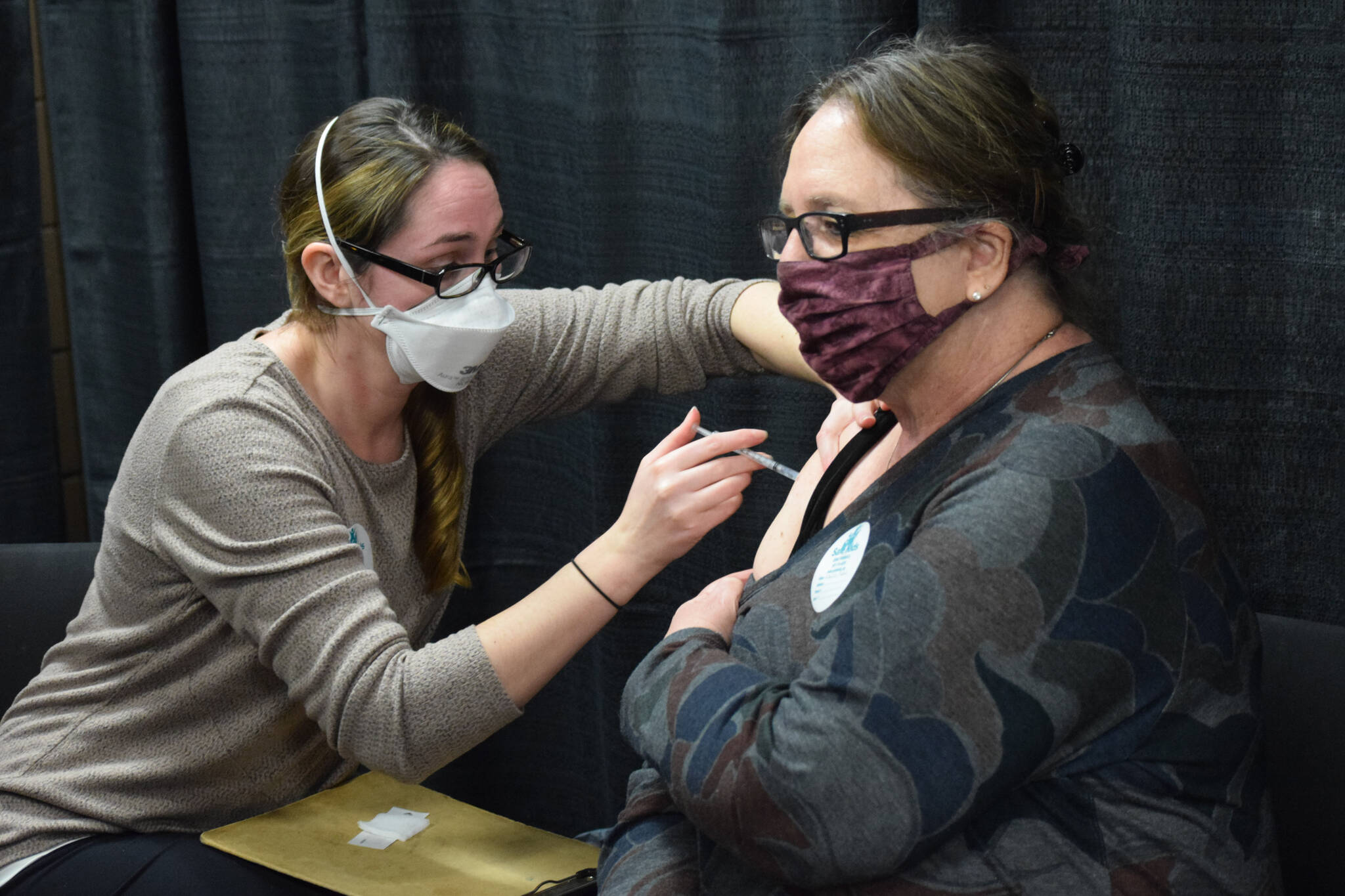The impacts of the COVID-19 pandemic continue to skew data on the Kenai Peninsula’s homeless population. That’s according to Jodi Stuart, of Project Homeless Connect, who presented findings from the annual one-day event during a Feb. 16 meeting of the Kenai City Council.
Participation in this year’s event continued a downward trend in participation since 2020, which she attributes to the impact of the COVID-19 pandemic, Stuart said. Last year’s event was held in a modified format due to the virus, but the organization was able to return to its traditional format in January’s event.
Stuart described the Kenai Peninsula Homelessness Coalition as being a new subset of the Kenai Peninsula Continuum of Care, which acts as the coalition’s funding arm. Project Homeless Connect refers to a one-day annual homelessness outreach event, through which data about the peninsula’s homeless population are collected.
Among this year’s participants, nearly half — 43% — reported that it was their first time experiencing homelessness. That’s compared to 15% of participants who reported experiencing homelessness four or more times in their life. Nearly all participants — 89% — said they would use a cold weather shelter if one existed.
Through this year’s Project Homeless Connect, 100 COVID home test kits were distributed, seven COVID-19 vaccines were administered and 16 women were enrolled in a Ladies First program that provides screening for breast and cervical cancer. Stuart said those are all accomplishments to be proud of.
“These are fantastic numbers,” Stuart said. “Our outreach matters.”
This year’s Project Homeless Connect came just weeks after a new cold weather shelter opened in Nikiski, now called the Nikiski Shelter of Hope. That shelter has 22 beds and is currently housing 18 people, Love INC Executive Director Leslie Rohr told the city council Wednesday. Love INC runs the Nikiski shelter.
Affordable housing continues to be a challenge on the Kenai Peninsula, Stuart said. Housing is considered to be affordable if it costs less than 30% of someone’s income. Someone who spends more than 30% of their income on housing is not considered to have affordable housing.
In Alaska, where the minimum wage is $10.34, the average renter needs to make $23.74 to afford a two-bedroom apartment, Stuart said. At that rate, a minimum wage worker would need to work 92 hours per week in order to afford a two-bedroom apartment.
Stuart said, though, that the facility is still not enough to meet the needs of the peninsula’s homeless population. A key component of a cold weather shelter, she said, is to provide a place where people can go when the weather is bad, such as in recent weeks.
“Although the Nikiski Shelter of Hope is fantastic, it doesn’t address all of the need,” Stuart said.
Full city council meetings can be streamed on the City of Kenai’s YouTube channel.
Reach reporter Ashlyn O’Hara at ashlyn.ohara@peninsulaclarion.com.


